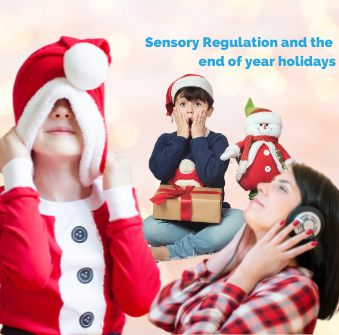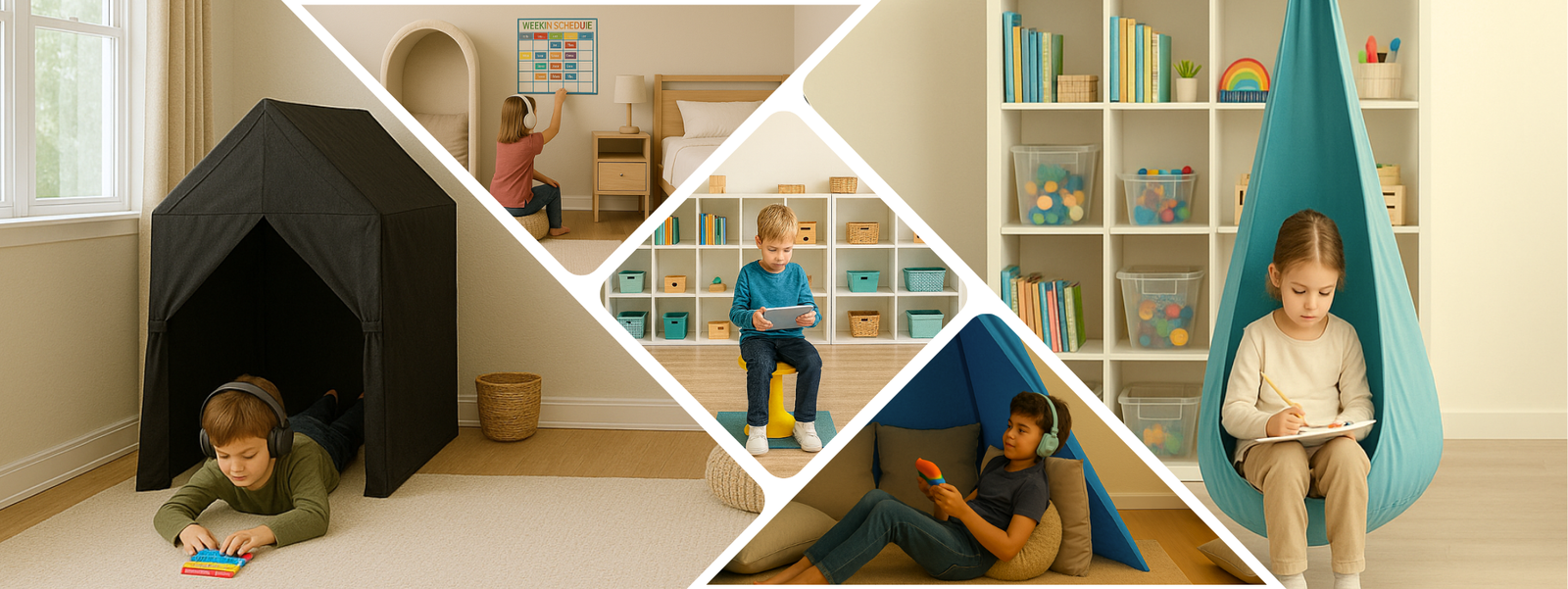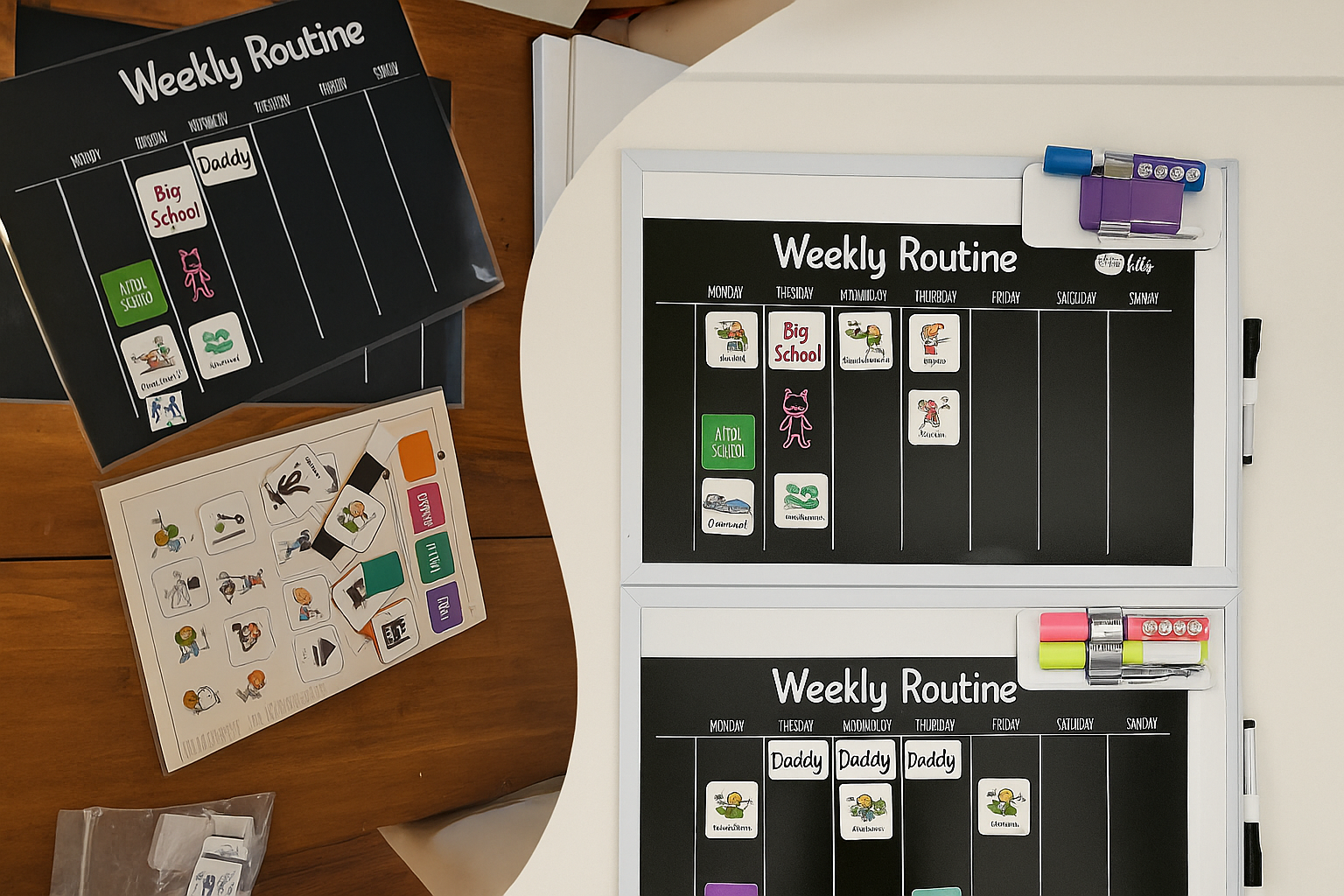The end-of-year holiday season can be a joyful time, but it may also feel overwhelming for children, adolescents, adults, and families. Busy schedules, noisy events, and bright environments can create sensory challenges. These changes in routine are especially difficult for people with Autism or sensory processing differences. Our therapist-curated collection of sensory resources is here to support comfort and regulation during the festive season.
A sudden change in daily routine can cause stress for many people. During the holiday season, shopping centres become crowded, music plays loudly, and festive lights flash everywhere. These sensory triggers may lead to anxiety or meltdowns. Supportive items can be useful in managing these situations. With the right strategies, you can make this season more enjoyable and smooth.
Why the Holiday Season Can Be Tough for People with Sensory Needs
The holiday period often brings bright, flashing lights, loud music, strong smells from food and candles, crowded shops, and changes in routine. These can be difficult for people who are sensitive to sensory input. Planning ahead and using calming strategies can help make the season more comfortable and enjoyable. My Diffability offers helpful tools to supportemotional regulation. For example, our timers and schedules will help you to keep your routinessimple, easy to follow and help with transitions between places or events.
How to Plan Ahead and Reduce Sensory Overload
Planning ahead can help avoid overwhelming situations and keep outings calmer. Before visiting a shopping centre, think about the quietest times to go, such as early mornings or late evenings. If possible, use convenient options like Click and Collect to skip the crowds. For children who are sensitive to noise, Ear Defender Ear Muffs can be very helpful. Wearing sunglasses or a hoodie can also reduce visual overstimulation. Bringing along a small fidgetcan make the experience more comfortable and manageable.
Adjust Decorations to Suit Sensory Needs
Festive lights and music can be joyful for some but overwhelming for others. If flashing lights cause discomfort, choose steady, soft lighting for your Christmas tree. You can find gentle and visually pleasing options to create a beautiful space without sensory overload. Try natural scents like fresh pine or cinnamon instead of strong artificial ones. Soft background music at a low volume can replace loud carols and keep the atmosphere calm.
Creating a Personalised Holiday Sensory Kit
A personalised sensory comfort kit can help children feel more at ease during family gatherings or outings. Pack a small bag with helpful items such as noise protection headphones, fidget toys or stress balls, colouring books, and bubbles. These tools can give children something familiar and soothing to focus on when the environment becomes overwhelming. You could also include weighted lap bags for calming pressure, or small visual timers to help them know when activities will change.
Make Daily Routines Easy to Follow
Changes in routine can be hard for children to manage. A simple calendar or visual schedule on the wall or fridge can help them see what is coming up. Mark important dates like school holidays, family gatherings, and gift-opening days. Tools like the Time Timer PLUS can support visual planning and visual routine charts or visual schedules make the days feel more predictable and less stressful. You can also use pictures or colour codes to make it easier to understand. Reviewing the calendar together each day can help children feel prepared and calm.
Encourage Movement & Take Calm Breaks
Movement can help both children and adults regulate their sensory needs. Make time for active play before or after busy events, using Movement & Balance tools will help you keep the body active and engaged. Quiet time is just as important as active play, giving both children and adults a chance to rest, relax, and recharge their energy.
Create a calm space at home with weighted blankets or cushions to help with relaxation. Parents and carers should also take moments for themselves. Use calming tools, enjoy soft music, or spend time outdoors. When you feel rested, it becomes much easier to support others.
Easy & Helpful Tips for a Calmer Holiday Period
These are simple actions you can take to make the holiday season less stressful and more enjoyable for everyone. They focus on comfort, planning, and creating a peaceful environment.
-
Shop during quieter times or choose online shopping to avoid crowds. This helps reduce noise, stress, and waiting time for you and your family.
-
Use sensory-friendly decorations, such as steady lights and soft colours. These are less overwhelming and create a calmer space.
-
Prepare a sensory kit with comfort items for outings. Include things like fidgets, headphones, or favourite small toys to help with self-regulation.
-
Keep routines visible with calendars or charts so everyone knows what to expect. This can make children feel more secure and reduce anxiety.
-
Make time for both movement and quiet rest. Active play can use up energy, while quiet time helps the body and mind recover.
-
Take care of your own well-being, as it helps you support others. Simple moments to rest or enjoy your hobbies can keep you feeling balanced.
Conclusion
The holiday season can be calmer with a few easy steps. Plan ahead, choose sensory-friendly options, and try to keep daily routines steady. Give yourself and your family time to rest and recharge between activities. Small, thoughtful actions can bring more comfort, joy, and peace during this busy time. We wish you and your loved ones a calm, happy, and enjoyable holiday season.
FAQs
What is sensory regulation?
Sensory regulation means controlling how you react to things you see, hear, feel, or smell, so you can stay calm and comfortable.
Why are holidays challenging for people with sensory sensitivities?
Holidays often have more noise, bright lights, and changes in routine, which can feel stressful or overwhelming for some people.
What is a sensory kit?
A sensory kit is a small set of items, like fidgets or headphones, that help calm and comfort a person in noisy or busy places.
How can I prepare my child for holiday events?
Show the plan on a visual schedule, talk about it before the event, and take comfort items from home to help your child feel prepared.
Are there sensory-friendly decorations?
Yes, using steady lights, soft colours, and gentle music can make the holiday atmosphere calm, comfortable, and easy to enjoy.





Leave a comment (all fields required)